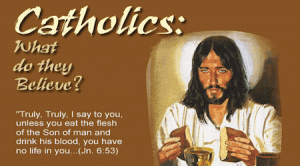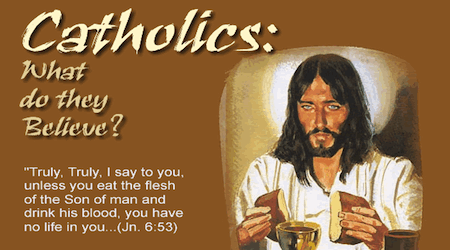
Whether someone who “attends Mass a few times a year or never” can be considered Catholic is debatable, but at any rate those responses make for interesting reading when compared to those who “attend Mass weekly.”
The majority of weekly attendees have a favorable view of Pope Benedict XVI; only a quarter of those who rarely attend feel the same way. Regarding recent papal events, 72% of weekly attendees have been closely following the news stories, while only 35% of those who rarely attend have been doing so. The majority of weekly church-goers would like to see the new pope either continue Benedict’s teachings or adopt more conservative ones. Among the no-shows, only 20% agree with that position (66% want more liberal teachings).
Not surprisingly, weekly attendees see the healthcare insurance debate as a religious liberty issue, but nominal Catholics see it as a matter of women’s health. Regular church-goers want the next pope to be against abortion (70%) and the death penalty (67%), but the figures for lax Catholics are 45% and 50% respectively. In other words, those who rarely or never attend Mass are more inclined to oppose the death penalty for a convicted murderer than they are to oppose the killing of innocents!
Surveys about celibacy, women’s ordination, and birth control have long found that most Catholics, including practicing ones, are open to change. In 1995, I commissioned a pollster to do a survey of Catholics on these issues. The question I was most interested in seeing the results for yielded a fascinating outcome: “If the Catholic church did not change its positions as many have suggested, how would that affect your commitment to the church?” An astonishing 83% said they would be just as committed, if not more so (for weekly attendees the figure was 90%).
In other words, while most Catholics are okay with making some changes, they value more highly the continuity of settled Church teachings.







